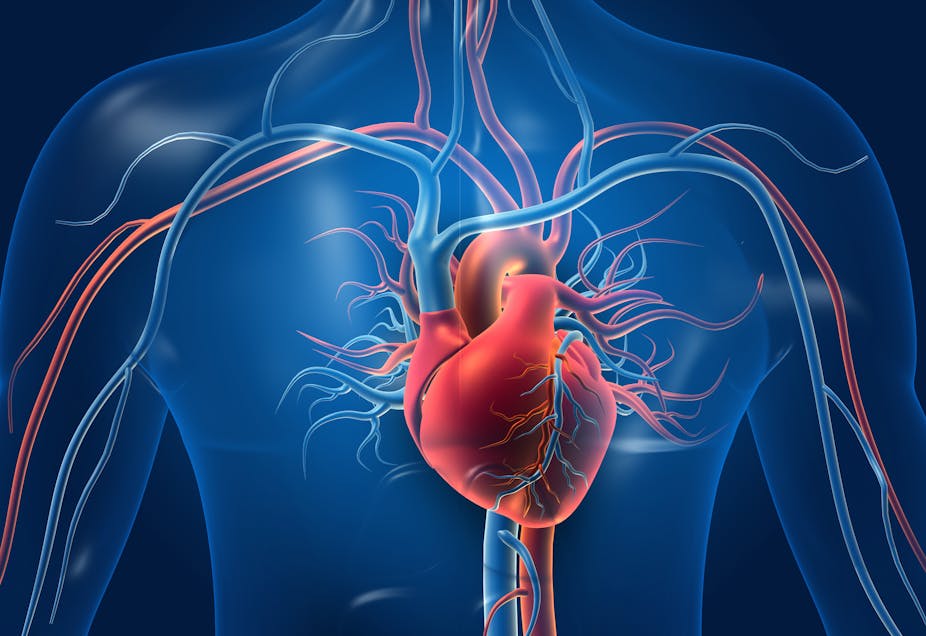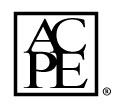
Join Dr. Brooke Jacobson as she examines the role of medications that augment the nitric oxide pathway in patients with heart failure with reduced ejection fraction. This presentation will begin by describing the background, etiology, and prevalence of heart failure followed by the pathophysiology. The pathophysiology in this presentation will specifically cover how the nitric oxide pathway is altered in patients with heart failure. Current guideline recommendations for optimizing heart failure medications will be reviewed. The presentation will then look at literature available for the nitric oxide augmenting agents. The trials that study the effectiveness of hydralazine/isosorbide (V-HeFT trials and the A-HeFT trial) will be reviewed and analyzed as well as the VICTORIA trial. The VICTORIA trial evaluates the efficacy of the newest agent in this drug class- vericiguat. The presentation will conclude with an evaluation of how these agents should be used in current practice. A treatment algorithm will be included to guide the decision on who should receive these agents.
To learn more about this activity, including speaker information and learning objectives, expand the module below (click the +). Pharmacists can earn 0.75 contact hour of knowledge-based CE credit at the completion of this activity.
This session will be held in a virtual home study format. All pharmacists are welcome to attend! Alumni can receive a coupon code to participate in this program at no cost by emailing alumni@uhsp.edu to verify alumni status.
Fee
$8.00
CE Hours
0.75
Activity Type
- Knowledge
Target Audience(s)
- Pharmacists
Accreditation(s)

|
St. Louis College of Pharmacy at the University of Health Sciences and Pharmacy in St. Louis is accredited by the Accreditation Council for Pharmacy Education as a provider of continuing pharmacy education. To learn more about the specific program information, including universal activity numbers (UAN's) and learning objectives, please expand the modules below. Following successful completion of an evaluation, CE credit will be automatically reported to NABP through the CPE Monitor system, using the NABP ePID numbers and date of birth (MMDD) stored in participants' user profiles. Follow this link to learn more about CPE Monitor and the credit reporting process » Participants are responsible for ensuring receipt of credit; no credit can be corrected or awarded if more than 60 days have passed from the date of the event or if the home study is expired.
It is the policy of St. Louis College of Pharmacy at the University of Health Sciences and Pharmacy in St. Louis, to ensure balance, independence, objectivity and scientific rigor in all its educational programs. All faculty participating in this program are expected to disclose to the program audience any real or apparent conflicts of interest related to the content of the presentation.
|
Requirements for CE Credit
To claim credit for this session, participants must complete the following steps:
- Visit this site. Make sure you are logged in and registered before proceeding.
- Complete an evaluation by clicking the green evaluation button
- Enter the evaluation code that was given to you at the end of the session you attended.
- Answer all questions honestly - we appreciate your feedback! All responses are stored anonymously.
- Click submit. As soon as you submit, a report containing the NABP ePID and DOB stored in your profile will be automatically sent to CPE Monitor.
- Please allow up to 48 hours for processing. Your credit should appear in your NABP profile online.
If you experience difficulty, please contact our office so that we may assist you. We are happy to help!
Participants are responsible for ensuring accuracy of credit reporting and receipt of credit. It is recommended that participants log on and review the information under "my account" prior to submitting the evaluation. NABP ePID and date of birth must be accurate for credit reporting to occur. Evaluations cannot be reopened after 14 days.
Participants are encouraged to check their NABP e-profiles for receipt of credit within one week of submitting their evaluation(s). If a participant notices an error in credit on their NABP e-profile, they are encouraged to contact our office as soon as possible. To best comply with ACPE's CE credit reporting policy, the University of health Sciences and Pharmacy in St. Louis is unable, for any reason, to award or correct CE credit if more than 60 days have passed from the event.
Learn more! Click the + symbol to expand.
This continuing education seminar will examine the role of medications that augment the nitric oxide pathway in patients with heart failure with reduced ejection fraction. The presentation will begin by describing the background, etiology, and prevalence of heart failure followed by the pathophysiology. The pathophysiology in this presentation will specifically cover how the nitric oxide pathway is altered in patients with heart failure. Current guideline recommendations for optimizing heart failure medications will be reviewed. The presentation will then look at literature available for the nitric oxide augmenting agents. The trials that study the effectiveness of hydralazine/isosorbide (V-HeFT trials and the A-HeFT trial) will be reviewed and analyzed as well as the VICTORIA trial. The VICTORIA trial evaluates the efficacy of the newest agent in this drug class- vericiguat. The presentation will conclude with an evaluation of how these agents should be used in current practice. A treatment algorithm will be included to guide the decision on who should receive these agents. Evaluation of audience comprehension will be assessed throughout the presentation with multiple-choice questions.
Objectives
- Explain the dysregulation of the nitric oxide pathway that occurs in heart failure
- Describe vericiguat's mechanism of action and pertinent drug properties
- Select an appropriate patient with heart failure that would benefit from hydralazine/isosorbide or vericiguat
Speaker(s)/Author(s)
|
Brooke Jacobson, Pharm.D. |
Activity Number
0033-0000-22-007-H01-P
Release Date:
Feb 1, 2022
Credit Expiration Date:
Feb 1, 2025
CE Hours
0.75
Fee
$8.00
